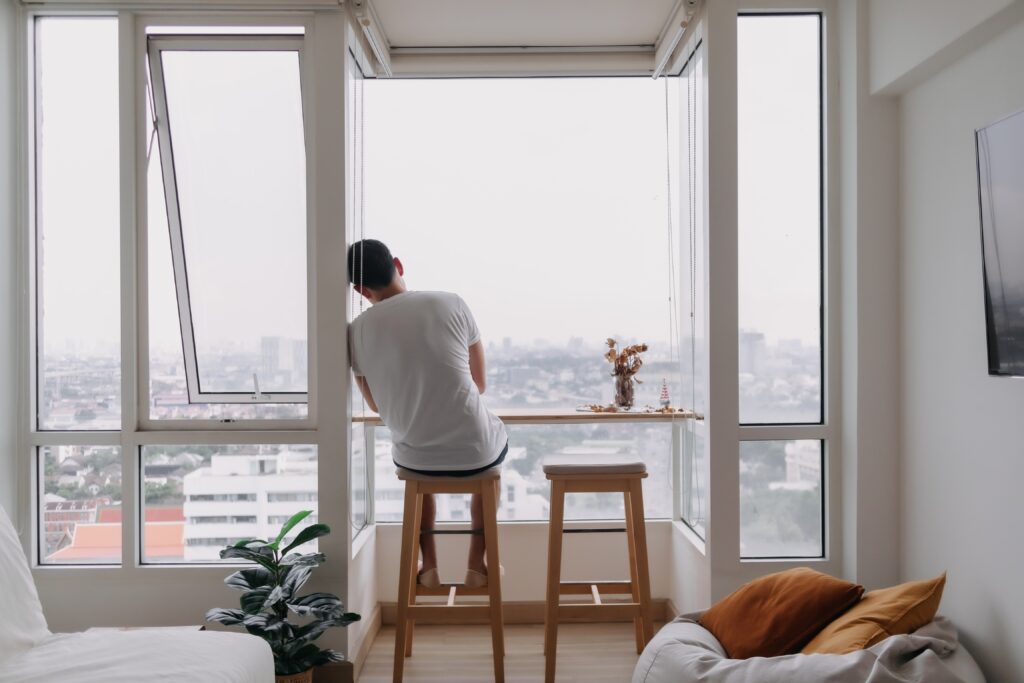
Do you react irritably to the presence of others and would prefer not to see anyone else? Then you're in good company. Almost everyone has reached the point where they no longer want to be around people. This is completely normal. If it's a temporary phenomenon, you don't need to worry.
If you don't feel like being around people, you avoid contact. You like to be alone and feel uncomfortable in the company of others. Confrontation with larger groups creates stress and you long for silence and security. As a result, you no longer go out and stay away from events. Your fellow human beings sense your aversion.
Not being in the mood for people is completely normal. You may be annoyed by the constant repetition or intrusive behavior of others. You have to listen to stories that don't interest you and feel burdened by other people's problems. Often personal preferences also play a role and you simply surround yourself with the wrong people.
Basically, the company of others creates aversion, stress and discomfort in you. This is often the result of Overloadbecause the interactions are often exhausting and stressful in the long term. People who are constantly in contact with others, both privately and professionally, suffer from a kind of social anxiety. Burnout and are happy when they no longer see anyone.
How quickly you lose interest in people also depends on your personality. For example, there are introverts and extroverts who experience social interactions differently. As a result, the Need The desire to be alone is more pronounced in some people than in others. This also applies to the Perception of stress to.
There are men and women who have no desire for people in the first place, and those who are generally more resilient and less Time need for themselves alone. Both are perfectly fine. Age also plays a role sometimes, as you get weaker over the years. However, if you are never able to interact with others, this will put you at a disadvantage both privately and professionally. You should then work on yourself.

Almost everyone has days when they would prefer to withdraw socially and enjoy their personal space. The following strategies and practical tips will help you do this:
If you don't feel like being around people, you have the right to be alone. Don't force yourself to socialize more than necessary. Set boundaries and avoid stressful social situations if they are not good for you.
Be honest to your fellow human beings and yourself. Feel free to say if something is too much for you and you would rather be alone. You will probably be met with understanding, because not wanting to be around people is a feeling that many people know very well.
Enjoy being alone in a pleasant atmosphere. Pamper yourself with good food, beautiful music and warm baths.
Think about why you don't feel like meeting people. Maybe it's because of the people around you. Focus on those you like and reduce contact with everyone else to the bare minimum.
If you realize that being alone is good for you, then build regular phases of social withdrawal into your everyday life. In many cases, you will then feel much more relaxed and be able to socialize again.
If you enjoy social distancing, this can promote a healthy self-image. Social distancing gives you enough time to reflect on yourself and think about your personal wishes and goals. You may also keep your distance because the people around you and the many different opinions and attempts at manipulation confuse you and prevent you from following your own personal path.
Go to lonely but don't feel like meeting people can be very stressful. If you don't feel good in social isolation, you'll quickly lose interest. Self-confidence. You find yourself in an emotional tension that leaves you little room to develop freely. In the worst case, social withdrawal exacerbates the problem and you can no longer interact with people at all.
Mental health problems can also make you lose the desire to interact with other people. You may be suffering from depression if you don't feel like being around people. Conversely, isolation encourages the development of depressive disorders, because loneliness makes you ill in the long term.
In many cases, those affected don't even know why they don't feel like meeting people. As a result, they are unable to draw strength from it or participate in the Problem to work. Coaching helps you to find and understand the reasons for your aversion to social interactions. Based on this knowledge, you develop strategies with the coach to deal with the situation better.
Temporary social exhaustion is completely normal. You feel burnt out, totally annoyed and just want some peace and quiet. This Feeling almost everyone experiences at some point. Coaching helps you especially in prolonged crisis situations and when you are under constant stress. It is often enough to recognize and eliminate the stress factors.
The situation is completely different with deep-seated problems. As already mentioned, depression often causes a lack of desire to be with people. In addition, there are women and men with social Fearsautism and other mental illnesses. In all these cases, it is best to seek professional help from a psychotherapist or psychiatrist. Many people don't even know they have a mental illness.
If your battery is empty and you've almost blown a fuse, then it's time to pull the plug and recharge your batteries. After periods of social exhaustion, it is essential that you regenerate so that you don't suffer from the situation permanently.
Treat yourself to a Time out and make the hours you spend alone meaningful. Take trips into nature, for example, and let the impressions sink in. Take up a hobby and find fulfillment in drawing, painting and photography. Meditation and mindfulness exercises can help with the Self-discovery help
Spend time in quiet places without a lot of public traffic. Just take in your surroundings and let your mind wander. Maybe you'll find a beautiful spot by an idyllic lake or take a walk through the forest. Or make yourself comfortable in your living room.

In order to be happy in the long term, you must be able to strike a balance between company and being alone. Find your individual balance and overcome the feeling of not wanting to be around people. Most men and women do not generally reject contact with others, but simply need regular periods of relaxation. After a short break from social life, they return to society stronger.
Develop a long-term strategy for your personal Well-being and focus on your own needs, because everyone is different. Accept the fact that you feel less like people than others. Set social priorities and reduce social interaction if it's good for you and you have a choice. This also includes limiting yourself to people you like and really enjoy being with.
If you have a lot of customer contact or deal with other people in your job, create a balance in your free time by spending a lot of time alone. Relax by going fishing or taking long walks, for example. Save your social reserves for really important interactions.
If you don't feel like meeting people, it's less of a problem than you think. Accept your own needs for social interaction and respect your boundaries. Find an individual path to your social well-being and accept yourself as you are. Our Self-Awareness Webinar helps you to achieve more satisfaction and happiness in life.

